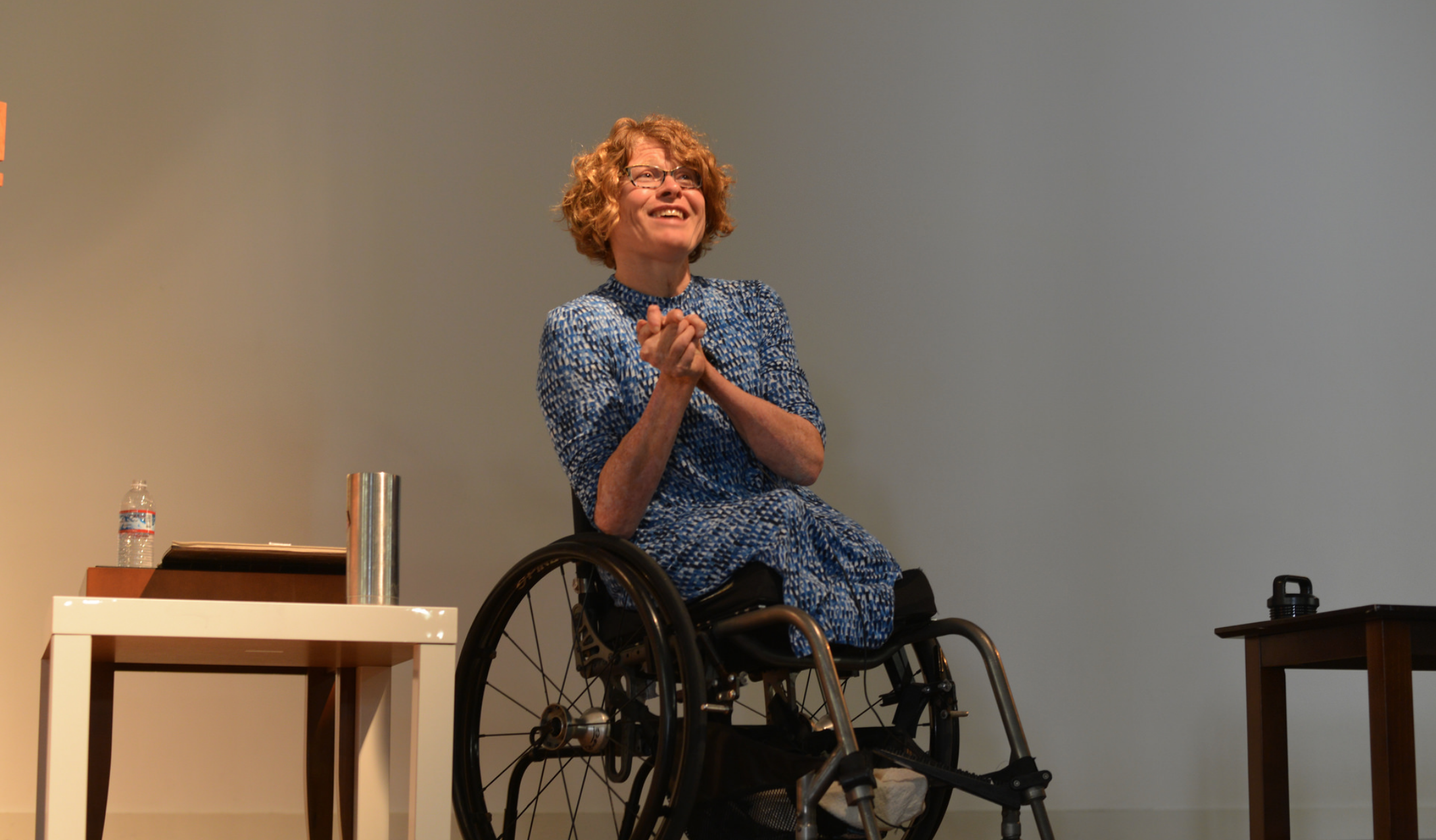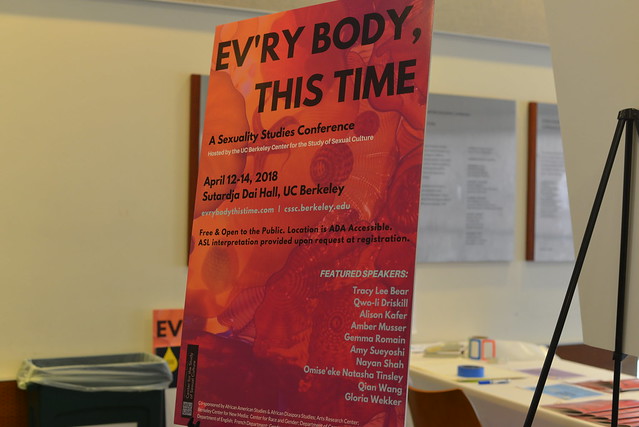Revisited: EV’RY BODY, THIS TIME

Put on by the Center for the Study of Sexual Culture, "Ev'ry Body, This Time: A Sexuality Studies Conference" ran from April 12 to 14, hosting various speakers partaking in a range of panels and talks about sexuality inclusive of queer, minority, disabled, and plus-sized discourse.
The first day of the conference saw speakers such as Brandon Callender, Kelly Coyne, Caleb Luna, and Amber Musser.
One talk, "Crip Kin, Manifesting," was led by Southwestern University feminist studies professor Alison Kafer. Kafer discussed sensual tactility, queerness, and disability — asking the audience to think about bodies different from ours. To illustrate her points, she showcased a piece from a Taiwanese artist who made "dermis shoes," which were sandals made from a skin-like material.
Kafer also took 40 minutes for a Q&A session with the audience. She elaborated on the complexity behind the ideology of refusing to cater to a non-disabled audience, admitting to her own intentional and unintentional failures to adhere to those principles. Furthermore, she touched upon the scholarly and activist work around crip design. Kafer pointed out the depictions of the wheelchair, noting how one could love their wheelchair but still feel the disconnect and violence by those who made it. Kafer suggests how art can be used to mitigate these feelings, and how one can "hack" their disability technologies. Designer Sara Hendren's project was used as an example: equipping a wheelchair with a bike rack. Kafer suggests that although the bike may not have been created for crip minds and bodies, it could still be co-opted for their use.
A local artists panel featuring Ajuan Mance, Devi Peacock, and Tina Takemoto was taking place simultaneously. The panel was situated in the Crumple and Mend room, which had ambiguous signs, papers, and yarns for conference attendees to interact with. While Mance, Peacock, and Takemoto spoke about their experiences as artists of color — speaking at length about their respective portfolios — attendees were free to interact with the mini stations posted at the long tables they were seated at. A sign at the end of one of these tables encouraged people to "wage a tiny protest (with tiny friends)," offering matchsticks, toothpicks, animal figurines, markers, and small paper slips.
The following two days of the conference fell along the same vein as the first. On April 13, participants witnessed speakers such as Qwo-Li Driskill, Amy Sueyoshi, Nayan Shah, and Tracy Lee Bear enumerating over local histories, hookup culture, and the neo-slave narrative. The last day had even more panels and talks for attendees to go to, pondering over embodied impressions, sexualizing sound, and Beyonce with scholars such as Athia Choudhury, Gemma Romain, and Gloria Wekker.
Visit the official website for more information.

